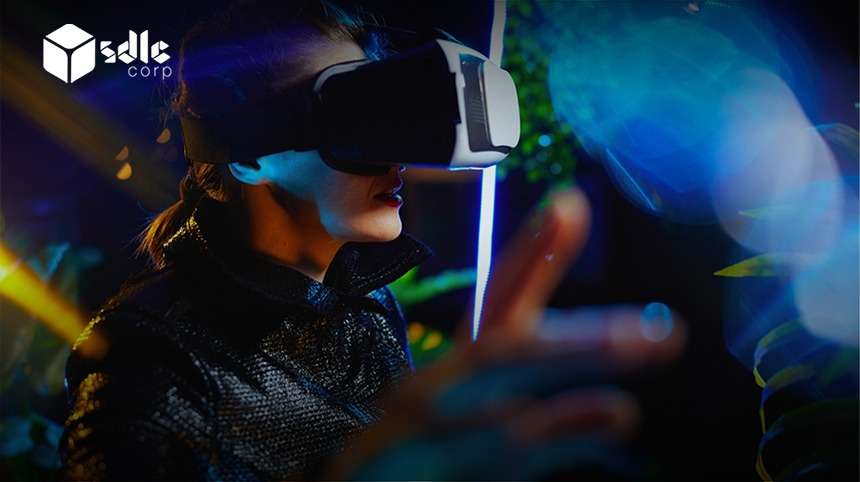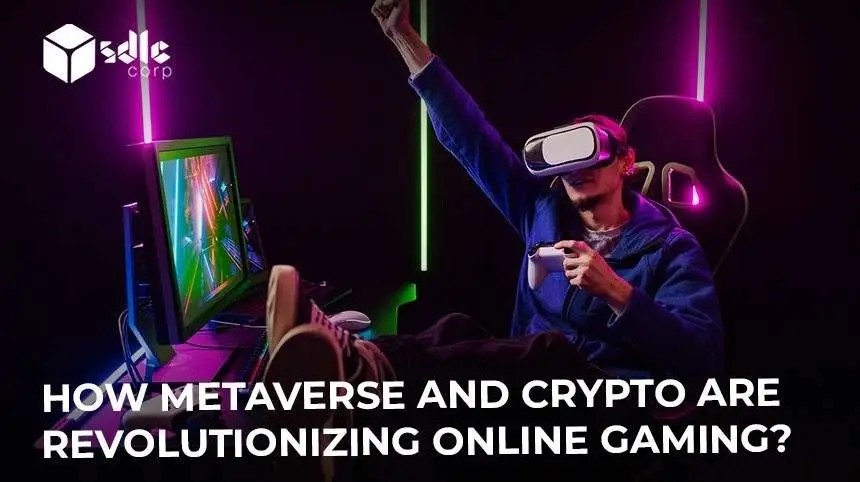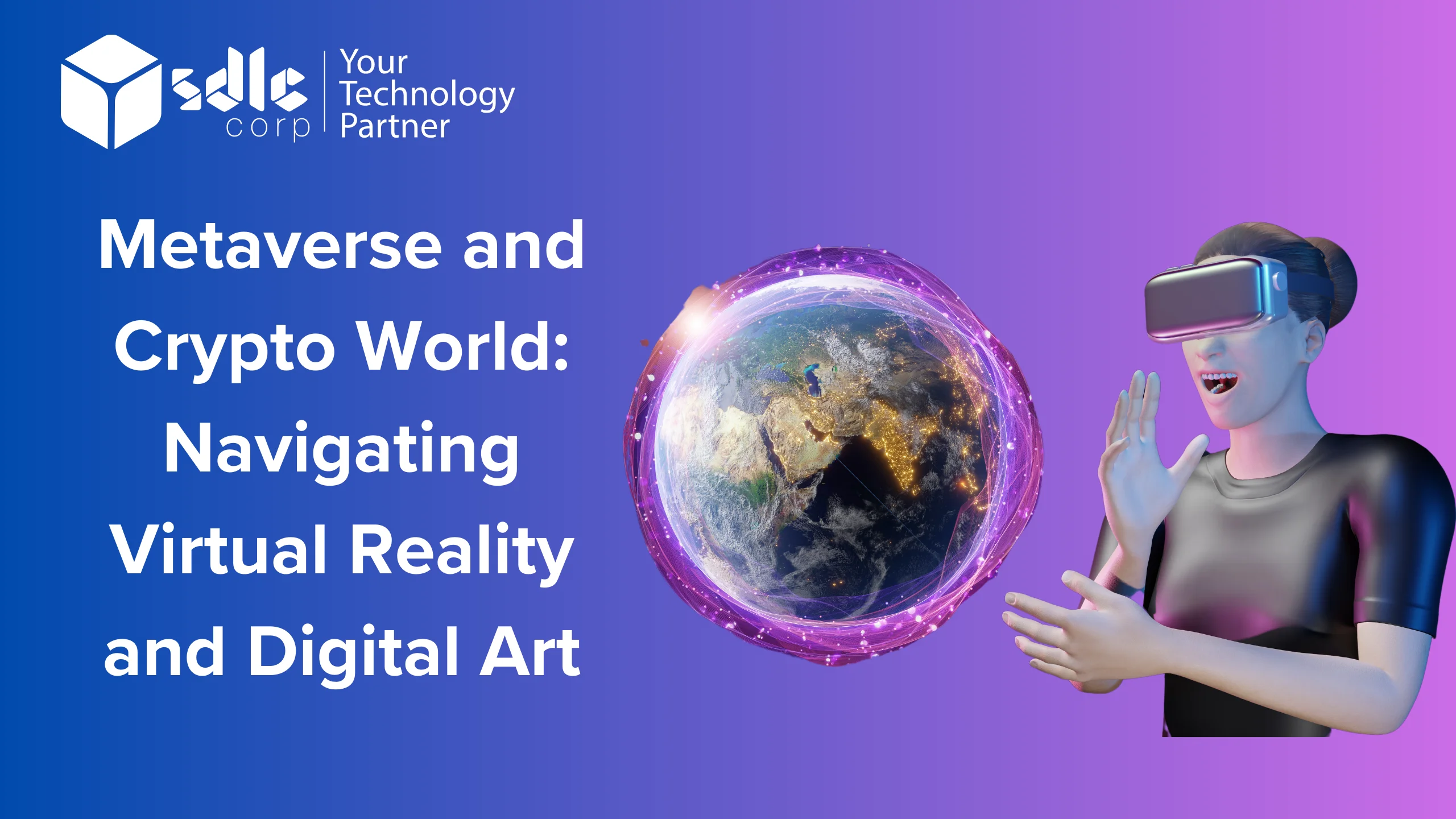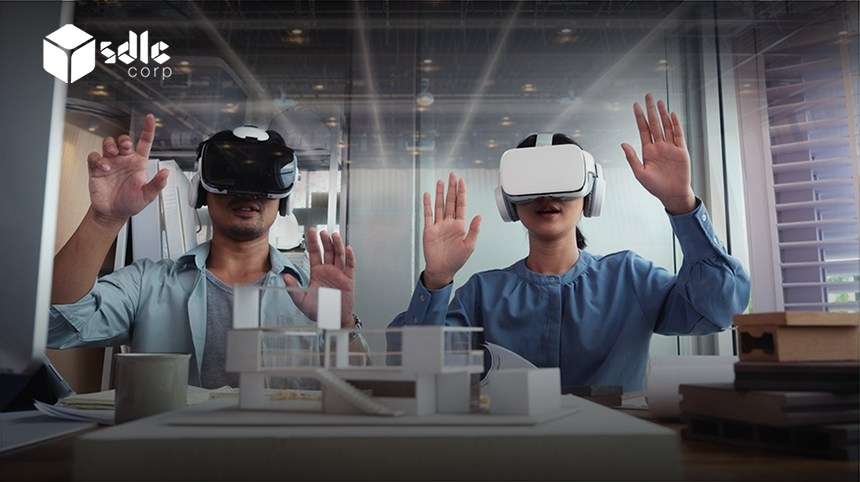Introduction
Metaverse and Crypto: Business Models, Digital Assets, and Financial Systems in the New Reality.
The old financial system is now experiencing new waves of change due to the emergence of the metaverse and the incredibly rapid expansion of cryptocurrencies. Business models and financial systems are being changed by virtual reality, digital assets, and blockchain technology.
Example: BNP Paribas
A new software from BNP Paribas enables users to execute financial transactions in virtual reality. Presently, BNP Paribas is launching innovative VR-based services aimed at enhancing and streamlining the customer journey. VR technology(What are VR AR MR XR and Its Differences), which is being utilised at a number of the Bank’s businesses, including Retail Banking, Real Estate, and Insurance, is opening up interesting new potential as the Group moves forward with its digital transformation.
With new tools created to aid customers account management and decision-making, BNP Paribas is now providing them with the chance to integrate VR methods into the way they conduct their banking operations. We’ll explore how the metaverse and cryptocurrencies are upending the traditional financial system in this article.
Metaverse & Crypto: Redefining finance. Explore today!

Metaverse and Its Potential

The term “Metaverse” describes a virtual environment built with the aid of technology and populated by actual people as their digital avatars. Science fiction has long used the metaverse concept, but recent technological developments have made it a reality.
The Metaverse has enormous and far-reaching potential and has the capacity to fundamentally alter how people live, work, and connect with one another. Here are a few of the Metaverse’s main advantages and prospective applications:
Increased Social Interaction
Regardless of a person’s geographical location, the Metaverse offers a new platform for connecting and interacting with others. This may bring individuals from all over the world together and lessen feelings of loneliness and isolation.
Education and Training
The Metaverse may be utilised as a virtual platform for training and education, offering students a secure and regulated setting in which to pick up new abilities and information.
Remote Work and Collaboration
The Metaverse may act as a virtual workspace where individuals can collaborate on projects from wherever they are. In addition to lowering travel and commuter expenses, this might boost production and efficiency.
Gaming and Entertainment
With its limitless potential for immersive and engaging experiences, the Metaverse offers a new platform for gaming and entertainment.
Explore our other insights!

How Are Metaverse and Crypto Revolutionizing Online Gaming?
Introduction Metaverse and Crypto in Online Gaming: The merger of crypto and the metaverse has given the world

Metaverse and Crypto World: Navigating Virtual Reality and Digital Art
Introduction Metaverse and Crypto World: As technology continues to push the boundaries of what is possible, the world

How Metaverse and Crypto Changing the E-Commerce Landscape?
The last several years have seen a tremendous increase in online shopping, due to a major contribution of
Marketing and E-commerce
The Metaverse may be utilized as a virtual market, giving companies a new way to reach customers and sell their goods.
Virtual Real Estate
In the Metaverse, you can buy, sell, and develop virtual real estate, which opens up a lot of new business opportunities.
A Brief Overview of the Impact of Metaverse and Crypto on the Traditional Financial System
The metaverse and cryptocurrency are two emerging technologies that have the potential to disrupt traditional financial systems. Metaverse refers to a collective space or virtual world made possible by the fusion of physical and virtual reality. Technology breakthroughs in virtual and augmented reality as well as blockchain, which offers a safe platform for virtual transactions and the production of virtual assets, which is driving the expansion of the metaverse.
The metaverse would open up new business prospects, including the production of virtual commodities and NFTs (non-fungible tokens), which are one-of-a-kind digital assets with ownership information recorded on a blockchain. Cryptocurrencies, such as Bitcoin and Ethereum, are decentralised digital currencies that use encryption techniques to secure transactions and control the creation of new units. The traditional financial system is under threat from cryptocurrencies, which provide a decentralised alternative to physical cash and traditional financial services by cutting out middlemen like banks.
By providing quicker, less expensive, and more secure alternatives, this can undermine established financial services like transfers and payment processing. The entire impact of the metaverse and cryptocurrency on the established financial system is still being developed, making it impossible to forecast. They might, however, significantly alter the way financial transactions are carried out and open up new business opportunities.
At the same time, they raise concerns about security and regulation, and how authorities and the financial sector respond will probably influence how they are adopted.
Example: DBS Entering the Metaverse
The largest bank in Southeast Asia, DBS, disclosed a cooperation with The Sandbox on Friday. The Sandbox is a virtual environment where users can create, control, and make money from their game experiences using the Ethereum blockchain.
The partnership’s goal, according to the statement, is “to develop DBS Better Society, an interactive metaverse experience emphasising the necessity of constructing a better, more sustainable world, and asking others to participate alongside.”
“With this relationship, DBS becomes the first Singaporean corporation to sign a partnership agreement with The Sandbox and the country’s first bank to enter the metaverse.”
Metaverse & Crypto: Finance Revolution. Join now!

The Future of Business Models with Virtual Reality and Digital Assets

The way business is conducted is changing as a result of virtual reality and digital resources. Companies may now establish and maintain a virtual presence that enables them to reach a worldwide audience thanks to the development of the metaverse.
This new economy is more accessible and effective since it is available 24/7 and runs in real time. Companies can market digital goods in the metaverse, including virtual cash, digital art, and virtual real estate.
Digital Money: A New Financial System Era
Since they first appeared over ten years ago, cryptocurrencies like Bitcoin and Ethereum have fundamentally altered how we see money. Peer-to-peer transactions using these digital currencies are possible without the requirement for a centralised entity like a bank. They are safe and open because they run on a decentralised system built on blockchain technology.
Traditional banking institutions are being disrupted and financial systems are being redefined as a result of the growth of cryptocurrencies.
Future of Money and Central Banks
The emergence of cryptocurrencies has attracted the attention of central banks. They are now investigating the possibility of central bank digital currencies. For cross-border payments, JP Morgan, for instance, has already created its own digital currency.
The use of digital currencies issued by central banks has the potential to enhance financial systems and make them more reliable and secure.

Platforms for the Metaverse and Custody Services
Users may develop, acquire, and trade digital assets in the metaverse, a virtual environment. Users now have a new, safe, and transparent method to invest in and own digital assets thanks to metaverse platforms like Decentraland and The Sandbox. Custody services are increasingly important as the metaverse expands because consumers require a secure location to keep their digital assets.
Future Transactions and Smart Contracts
The way we conduct business is changing as a result of smart contracts, self-executing contracts with the contents of the agreement put straight into lines of code. These contracts are safe, open, and effective because they run on a decentralised system powered by blockchain technology. They are being used to automate procedures and lessen the need for middlemen in several sectors, including finance, real estate, and the arts.



